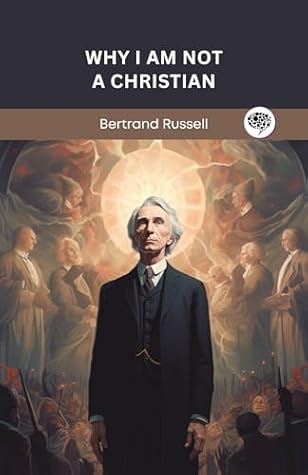More on this book
Community
Kindle Notes & Highlights
I think, however, that there are two different items which are quite essential to anybody calling himself a Christian. The first is one of a dogmatic nature — namely, that you must believe in God and immortality. If you do not believe in those two things, I do not think that you can properly call yourself a Christian. Then, further than that, as the name implies, you must have some kind of belief about Christ.
But for the successful efforts of unbelievers in the past, I could not take so elastic a definition of Christianity as that. As I said before, in olden days it had a much more full-blooded sense. For instance, it included he belief in hell. Belief in eternal hell-fire was an essential item of Christian belief until pretty recent times. In this country, as you know, it ceased to be an essential item because of a decision of the Privy Council, and from that decision the Archbishop of Canterbury and the Archbishop of York dissented; but in this country our religion is settled by Act of
...more
“My father taught me that the question ‘Who made me?’ cannot be answered, since it immediately suggests the further question `Who made god?’” That very simple sentence showed me, as I still think, the fallacy in the argument of the First Cause. If everything must have a cause, then God must have a cause. If there can be anything without a cause, it may just as well be the world as God, so that there cannot be any validity in that argument.
...more
is exactly of the same nature as the Hindu’s view, that the world rested upon an elephant and the elephant rested upon a tortoise; and when they said, “How about the tortoise?” the Indian said, “Suppose we change the subject.”
the whole idea that natural laws imply a lawgiver is due to a confusion between natural and human laws.
Do you think that, if you were granted omnipotence and omniscience and millions of years in which to perfect your world, you could produce nothing better than the Ku Klux Klan or the Fascists?
The point I am concerned with is that, if you are quite sure there is a difference between right and wrong, then you are in this situation: Is that difference due to God’s fiat or is it not? If it is due to God’s fiat, then for God himself there is no difference between right and wrong, and it is no longer a significant statement to say that God is good. If you are going to say, as theologians do, that God is good, you must then say that right and wrong have some meaning which is independent of God’s fiat, because God’s fiats are good and not bad independently of the mere fact that he made
...more
You could, of course, if you liked, say that there was a superior deity who gave orders to the God that made this world, or could take up the line that some of the gnostics took up — a line which I often thought was a very plausible one — that as a matter of fact this world that we know was made by the devil at a moment when God was not looking. There is a good deal to be said for that, and I am not concerned to refute it.
Most people believe in God because they have been taught from early infancy to do it, and that is the main reason. Then I think that the next most powerful reason is the wish for safety, a sort of feeling that there is a big brother who will look after you. That plays a very profound part in influencing people’s desire for a belief in God.
He believed that His second coming would happen during the lifetime of many then living. That was the belief of His earlier followers, and it was the basis of a good deal of His moral teaching. When He said, “Take no thought for the morrow,” and things of that sort, it was very largely because He thought that the second coming was going to be very soon, and that all ordinary mundane affairs did not count. I have, as a matter of fact, known some Christians who did believe that the second coming was imminent.
There is one very serious defect to my mind in Christ’s moral character, and that is that He believed in hell. I do not myself feel that any person who is really profoundly humane can believe in everlasting punishment.
I must say that I think all this doctrine, that hell-fire is a punishment for sin, is a doctrine of cruelty. It is a doctrine that put cruelty into the world and gave the world generations of cruel torture; and the Christ of the Gospels, if you could take Him asHis chroniclers represent Him, would certainly have to be considered partly responsible for that.


